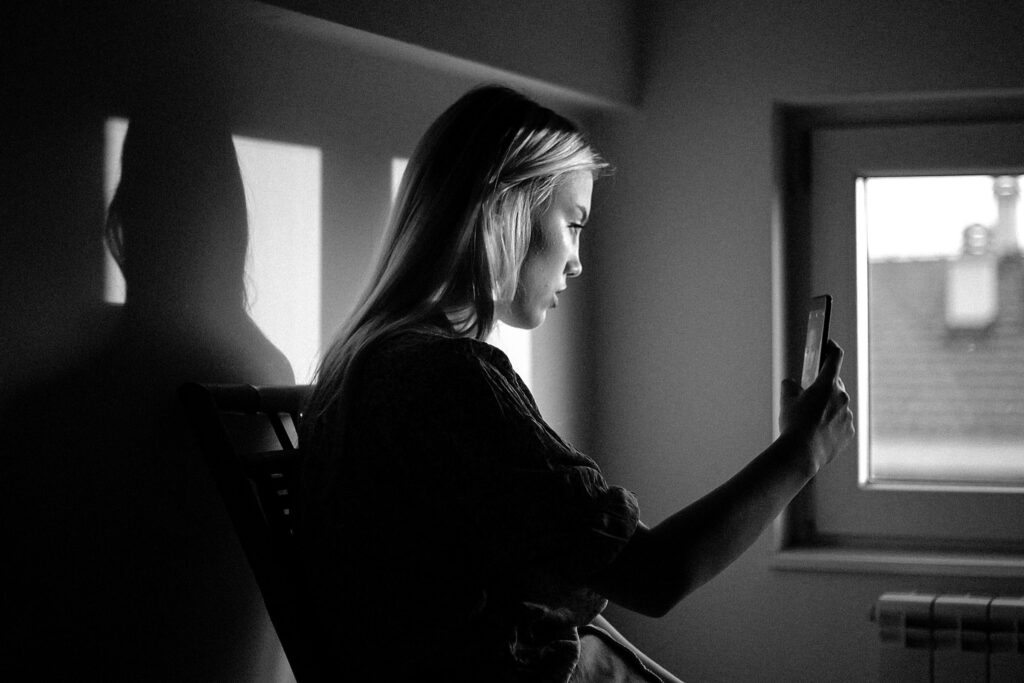To be online is to be constantly exposed. While it may seem normal, it’s a level of exposure we’ve never dealt with before as human beings. We’re posting on Twitter, and people we’ve never met are responding with their thoughts and criticisms.
People are looking at your latest Instagram selfie. They’re literally swiping on your face. Messages are piling up.
It can sometimes feel like the whole world has its eyes on you. Being observed by so many people appears to have significant psychological effects. There are, of course, good things about this ability to connect with others.
It was crucial during the height of the pandemic when we couldn’t be close to our loved ones, for example. However, experts say there are also numerous downsides, and these may be more complex and persistent than we realize. Studies have found that high levels of social media use are connected with an increased risk of symptoms of anxiety and depression .
There appears to be substantial evidence connecting people’s mental health and their online habits. Furthermore, many psychologists believe people may be dealing with psychological effects that are pervasive but not always obvious. “What we’re finding is people are spending way more time on screens than previously reported or than they believe they are,” says Larry Rosen, professor emeritus of psychology at California State University, Dominguez Hills.
“It’s become somewhat of an epidemic. ” Rosen has been studying the psychological effects of technology since 1984, and he says he’s watched things “spiral out of control. ” He says people are receiving dozens of notifications every day and that they often feel they can’t escape their online lives.
“Even when you’re not on the screens, the screens are in your head,” Rosen says. One value of privacy is that it gives us space to operate without judgment. When we’re using social media, there are often a lot of strangers viewing our content, liking it, commenting on it, and sharing it with their own communities.
Any time we post something online, thus exposing a part of who we are, we don’t fully know how we’re being received in the virtual world. Fallon Goodman, an assistant professor of psychology at George Washington University, says not knowing what kind of impression you’re making online can cause stress and anxiety. “When you post a picture, the only real data you get are people’s likes and comments.
That’s not necessarily a true indication of what the world feels about your picture or your post,” Goodman says. “Now you’ve put yourself out there—in a semi-permanent way—and you have limited information about how that was received, so you have limited information about the evaluations people are making about you. ” Anna Lembke, a professor of psychiatric and behavioral sciences at Stanford University, says we construct our identities through how we’re seen by others.
Much of that identity is now formed on the internet, and that can be difficult to grapple with. “This virtual identity is a composition of all of these online interactions that we have. It is a very vulnerable identity because it exists in cyberspace.
In a weird kind of way we don’t have control over it,” Lembke says. “We’re very exposed. ” Without the ability to find out how their identity is ricocheting around the virtual world, people often feel a fight-or-flight response when they’ve been online for many hours—and even after they’ve logged off.
“It’s kind of an adapted hyper-vigilance. As soon as you send something out into the virtual world, you’re sort of sitting on pins and needles waiting for a response,” Lembke says. “That alone—that kind of expectancy—is a state of hyperarousal.
How will people respond to this? When will they respond? What will they say?” It would be one thing if only you saw any negative reactions, Lembke says, but they’re often available for everyone to see. She says this exacerbates feelings of shame and self-loathing that are already “endemic” in the modern world. We are social creatures, and our brains evolved to form communities, communicate with each other, and work together.
We have not evolved to expose ourselves to the judgment of the whole world on a daily basis. These things affect everyone differently, but it’s clear many people regularly feel overwhelmed by this exposure level. If we’re not careful, our online lives can become a source of chronic stress that subtly seeps into everything.
Everyone needs some privacy, but we often don’t provide it for ourselves and end up feeling like we’re constantly battling invisible enemies. There are things you can do for yourself, however. You can turn off your notifications for social media apps, reduce how much time you spend on them, limit when you allow yourself to use them, and more.
Goodman says it sometimes helps to keep your phone in the other room so you’re not so easily tempted to pick it up. Lembke says we need to change how we think about social media and internet use as a society. She calls it a “collective” problem, not just an individual one.
“We need to come up with a kind of cultural etiquette around what appropriate and healthy consumption is, just like we have for other consumptive problems,” Lembke says. “We have nonsmoking areas. We don’t eat ice cream for breakfast.
We have all kinds of laws around who can buy and consume alcohol, who can go into a casino. We need guardrails for these digital products, especially for minors. ”.
From: wired
URL: https://www.wired.com/story/privacy-psychology-social-media/
